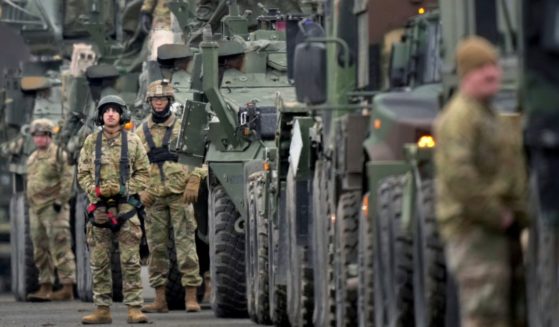Supreme Court tosses $315 million award in USS Cole lawsuit
WASHINGTON (AP) — The Supreme Court on Tuesday threw out a nearly $315 million judgment against Sudan stemming from the USS Cole bombing, saying Sudan hadn’t properly been notified of the lawsuit.
The justices ruled 8-1 that notice of the lawsuit should have been mailed to Sudan’s foreign ministry in the country’s capital, Khartoum. The notice was instead mailed to Sudan’s embassy in Washington.
The lawsuit in which the justices ruled involves sailors who were injured in the 2000 bombing of the Cole in Yemen. Sailors and their spouses sued Sudan in a U.S. court, arguing that Sudan had provided support to al-Qaida, which claimed responsibility for the Cole attack. Seventeen sailors died when the ship was struck by a bomb-laden boat. Dozens of others were injured.
In order to alert Sudan to the lawsuit, the group mailed the required notice to Sudan’s embassy in Washington. Sudan didn’t initially respond to the lawsuit in court, and a judge entered an approximately $315 million judgment against the country. Sudan then tried to get the judgment thrown out.
Sudan and the sailors who were suing disagreed about the requirements of a 1976 law, the Foreign Sovereign Immunities Act. The statute lays out how to properly notify another country of a lawsuit filed in a U.S. court. If other agreements between the countries don’t exist, the law says that notice should be “addressed and dispatched … to the head of the ministry of foreign affairs of the foreign state concerned.”
Lawyers for Sudan and for the U.S. government had argued that the best reading of that phrase is that it requires the notice to be sent to the foreign minister in the foreign country. The Supreme Court agreed.
Justice Samuel Alito, writing for the majority , noted that the ruling is “not the end of the road” for the injured sailors and their spouses who sued. They can try resending notice of the lawsuit, this time to Sudan’s foreign ministry in Khartoum. If that fails, they have yet another option, sending it through diplomatic channels.
Justice Clarence Thomas dissented, saying he believed the sailors complied with the Foreign Sovereign Immunities Act by sending notice of the lawsuit to the embassy.
Andrew C. Hall, a lawyer who represents survivors of the attack, said Tuesday that he was disappointed with the ruling but said that the case would continue along with a second related case filed by family members of the 17 sailors who died in the attack.
Beyond the current case, the high court’s decision will most directly affect victims of terrorist attacks abroad who want to use U.S. courts to sue foreign countries that allegedly provided support for those attacks.
The case is 16-1094, Republic of Sudan v. Harrison.
___
Follow Jessica Gresko on Twitter at http://twitter.com/jessicagresko
The Western Journal has not reviewed this Associated Press story prior to publication. Therefore, it may contain editorial bias or may in some other way not meet our normal editorial standards. It is provided to our readers as a service from The Western Journal.
Truth and Accuracy
We are committed to truth and accuracy in all of our journalism. Read our editorial standards.












